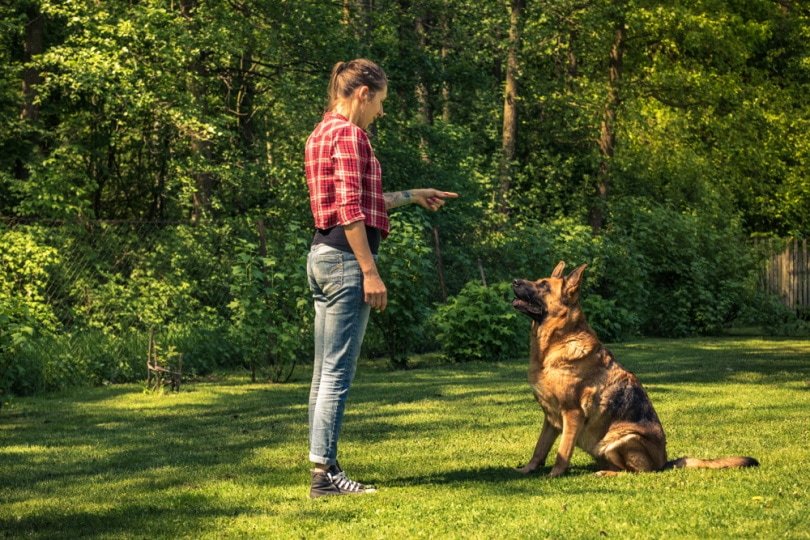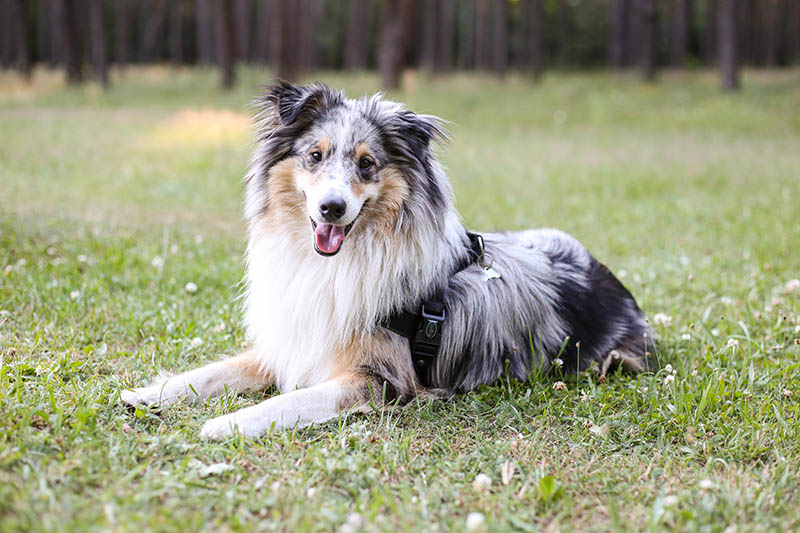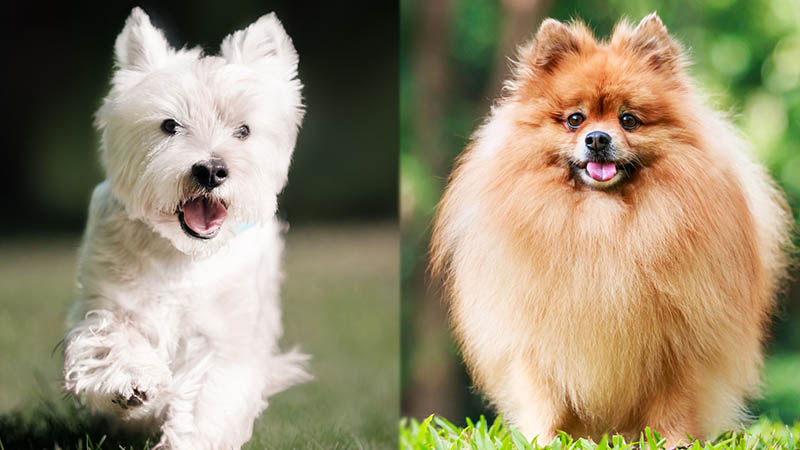How to Stop a Dog From Being Possessive of Its Owner: 6 Expert Tips
By Brooke Bundy
Updated on
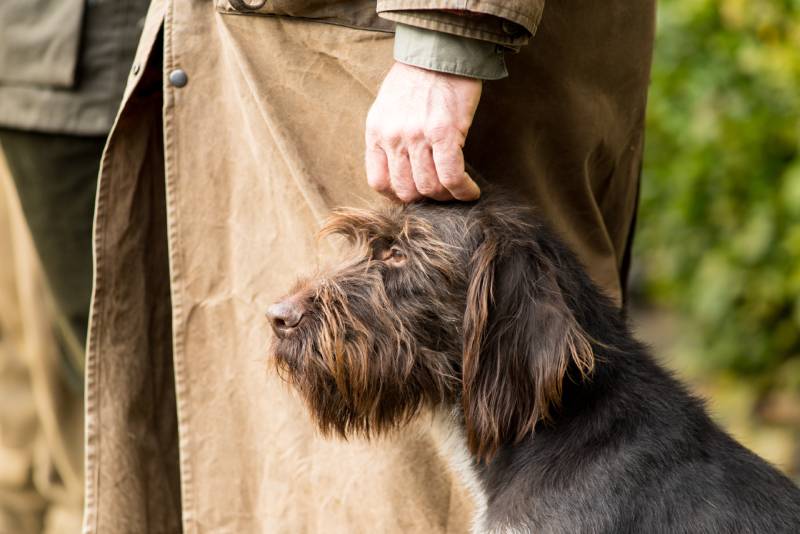
Click to Skip Ahead

Why Dogs Are Possessive of Their Owners
From guarding food to claiming ownership of their favorite toys, dogs vigilantly work to protect the things they value. As their favorite person, you are certainly no exception. By acting possessive, your dog may believe they are merely trying to protect you from a perceived threat, much like how an overprotective parent hovers over their children. While it’s an admirable sentiment, it’s still a damaging behavior that will need to be resolved before it has the chance to escalate into true aggression towards other people.
Certain breeds are more prone to developing possessive behaviors, especially those traditionally employed as a guard dog. However, with training, you should be able to help your dog kick the habit, no matter what breed or category they belong to.
It’s also worth noting that many dogs that are usually calm and benign may suddenly develop aggressive tendencies during their owner’s pregnancy. In fact, dogs may be able to detect pregnancy before a pregnancy test due to their keen sense of smell sensing hormonal changes. Elderly dogs developing a type of canine dementia may also become aggressive. Canine dementia can cause confusion, resulting in aggression towards strangers and people they’ve known for years alike.
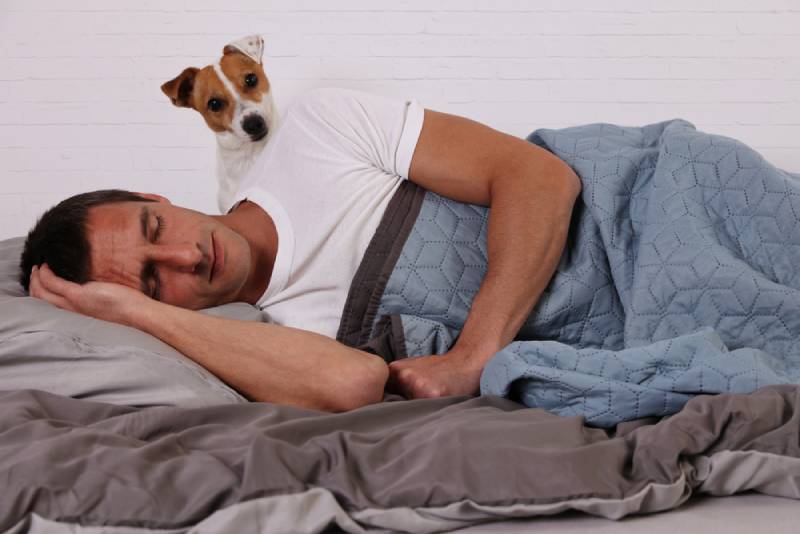
How to Tell If Your Dog Is Acting Possessive
In some cases, your dog may seemingly turn protective overnight. This is more likely to happen if their behavior stems from an underlying medical condition or if you’re pregnant. Aside from those reasons, dogs are more likely to gradually adopt possessive behaviors.
It may start with inanimate objects such as toys or food and work its way up to humans.
- Growl, snarl, snap, or push others out of their way
- Snap or growl at you if you try to take away their food or toys
- Hoard their toys
- Bark or otherwise try to interrupt when you pay attention to another person or animal
- Shove the object of their jealousy out of the way
- Guard their food and toys
It’s important to deal with these behaviors when they appear to avoid perpetuating a big problem that’s hard to manage later.
The 6 Tips on How to Stop a Dog from Being Possessive
When training a possessive dog, remember to stay calm. Overreacting can reinforce their behavior and delay the training process. Here’s what to do depending on if your dog’s possessive attitude over you stems from jealousy over you, another pet, or possessive attitudes towards their stuff:
1. Socialize Them Early
As soon as your puppy receives all of their core vaccines, it’s time to hit the dog park and go out to town. Introducing your dog to other people and animals while they’re young reduces the risk of them becoming antisocial or possessive over you or anything else in the future. Don’t worry, though, if you have an older pup. While early socialization has its perks, it’s never too late to begin.
2. Separate Yourself from Your Dog
If your dog snaps or barks at another person when you’re in the room, silently separate yourself from your dog. Whether you put them in a crate in a separate room, or move away from them, it’s important not to make eye contact or talk to them so they don’t receive the attention they’re demanding. If your dog is biting or acting aggressive towards anyone, remove yourself from the situation as opposed to picking them up.
For example, if you’re speaking to someone and your dog snaps at them, have that person follow you to another room and shut the door behind you, leaving your dog alone in the other room. Once your dog has calmed down, allow the person they were jealous over to give them a treat, if they’re willing. Building positive associations with other people helps your dog like the people that they’ve been seeing as a threat.
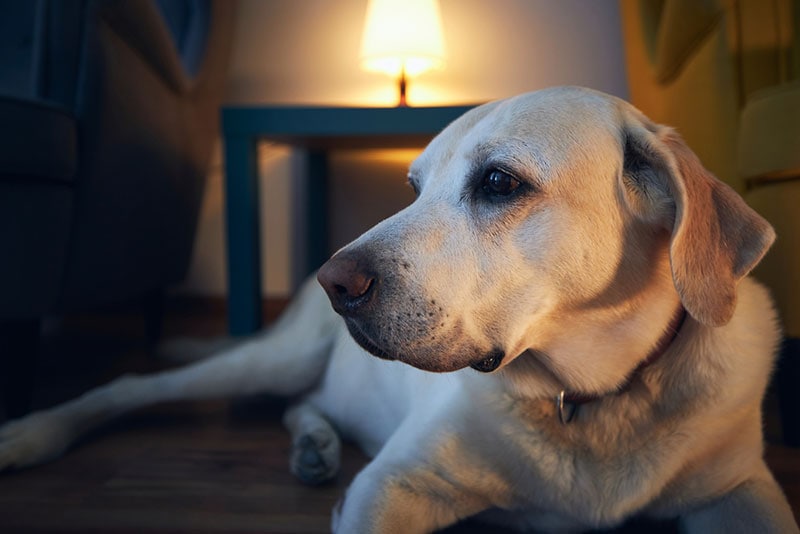
3. Separate Yourself and Other Pets from Your Dog
When you brought home another pet, you probably envisioned snuggles with your dog and your new pet altogether on the sofa as one big happy family. Welcome home might’ve quickly turned into a nightmare with snarls and sharp teeth, however, if your dog has a jealous nature and is acting possessive over you.
The best thing you can do when your dog acts jealous of the new pet is to remove yourself and the new pet to another room, away from your dog. This will teach your dog that they can only be in the same room with you both if they behave.
4. Treat Their Separation Anxiety
Dogs that are possessive over their owners can sometimes signal separation anxiety. Another thing you can do to reduce possessive behaviors is to build positive associations with their quiet time. Dogs that suffer from separation anxiety might have a more difficult time meeting new people since they form tight bonds with their owners. Leaving them in a comfortable crate away from you for at least a few hours each day can help them become more at ease when you’re apart. If possible, hiring a sitter or dog walker when you’re away can also help them become more comfortable with different people, so that they’re less possessive over you when someone new comes around.
5. Schedule a Visit with Your Vet
If your dog ever starts acting off, such as turning suddenly possessive or anxious, it’s a great idea to make an appointment for a wellness visit with your vet just to make sure everything is good with your dog physically.
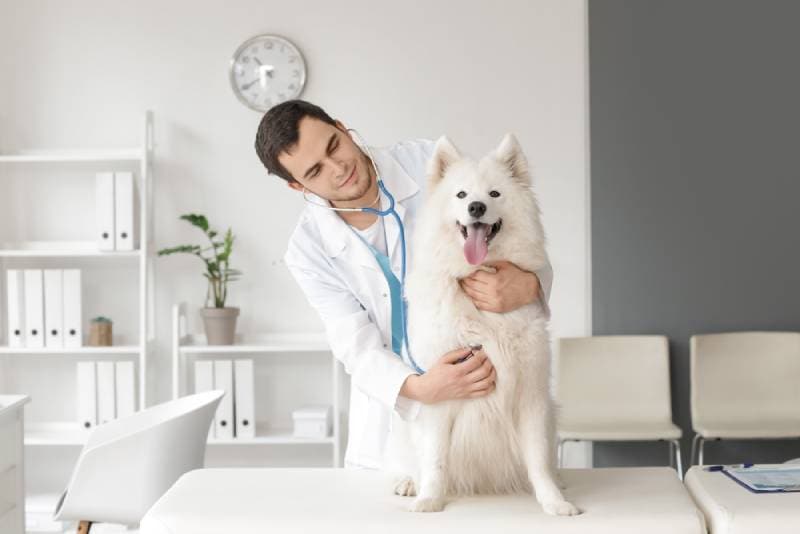
6. Consider Hiring Professional Help
Some situations are difficult to resolve without assistance. If your dog is acting possessive over you and aggressively towards strangers, you might want to hire a dog trainer sooner rather than later to avoid possible liability lawsuits that can ensue if your dog bites someone.
Why You May Be Overparenting Your Dog
Whether they ask for our attention politely or with a rude headbutt, it can be difficult to ignore our dogs. However, if you want them to stop annoying you with possessive behavior, you’ll need to decline their demands for attention. The next time your dog barks at you impatiently while you greet a guest or stroke your cat, the best thing you can do is to completely ignore them. Many pet parents make the common mistake of overparenting their possessive pet by paying attention to them every time they raise a ruckus. This reinforces their behavior because they got exactly what they wanted: your attention.
It’s also important that you never hit or yell at your dog. Violent behavior breaks your dog’s trust and may even escalate any aggressive tendencies that they may have. At the very least, you’re again reinforcing the idea that all your pet needs to do for your attention is act naughty, which quickly builds bad habits.
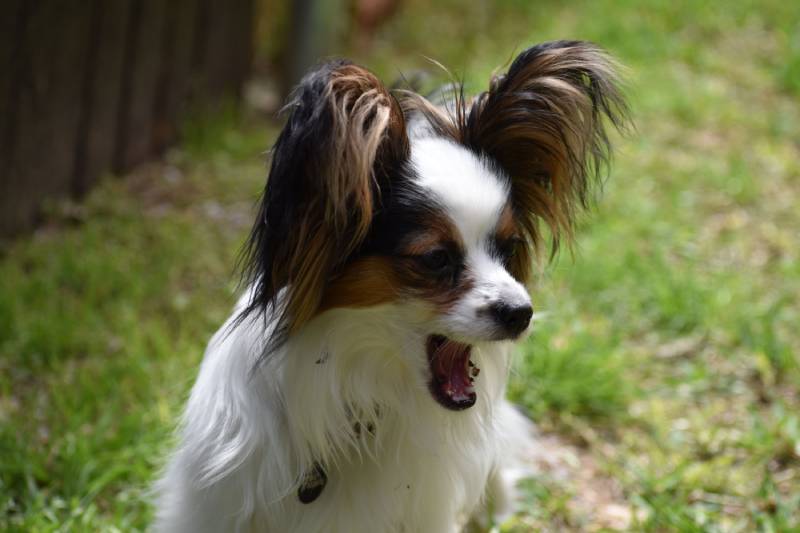
Conclusion
Dogs may act possessive of their owners for different reasons. Once you discover the cause, the issue is much easier to overcome. If you’ve recently brought a new dog home, you’ll want to begin training them as soon as possible to avoid potential possessive and aggressive behaviors. Remember, the goal is to ignore a possessive dog, so don’t give in to their demands for attention. If they are already acting aggressive towards others, you may want to consider hiring a dog trainer for professional advice to avoid potential dog bite situations.
- Related Read: Tips to Stop Your Dog Lunging and Barking at Other Dogs
Featured Image Credit: Leoniek van der Vliet, Shutterstock
